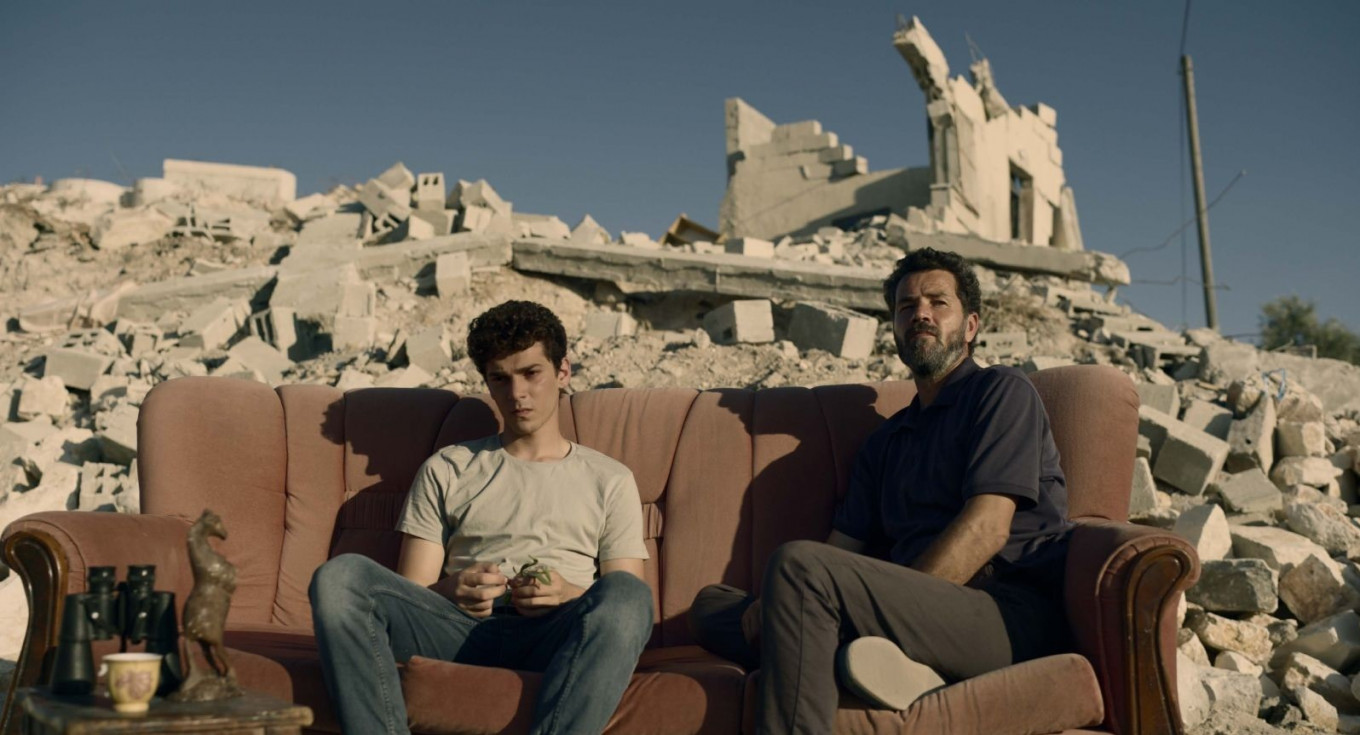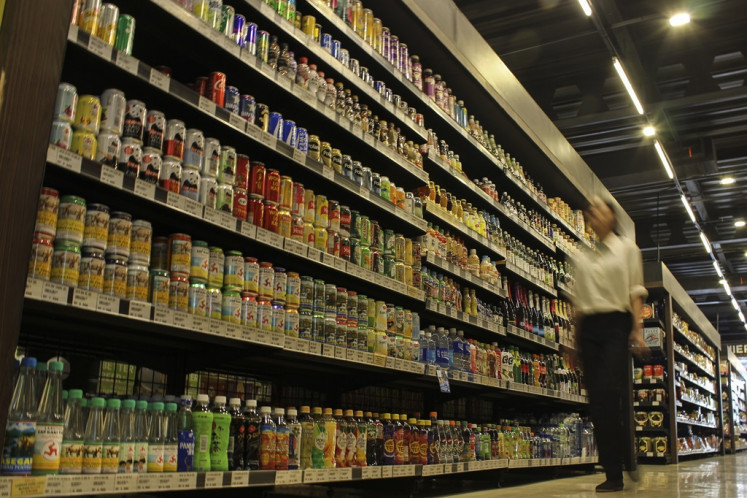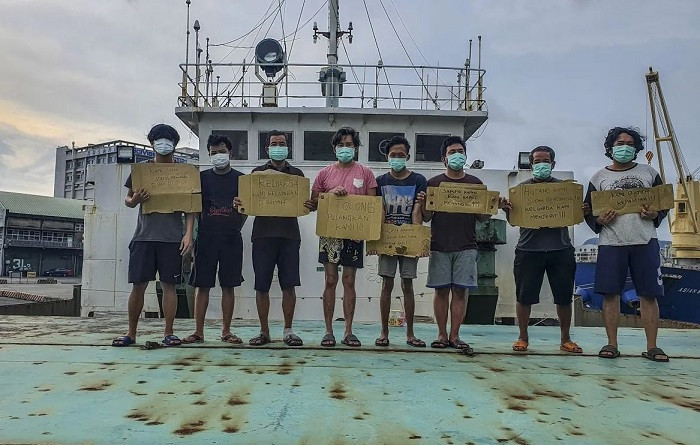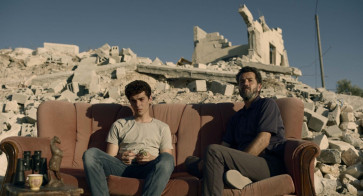Popular Reads
Top Results
Can't find what you're looking for?
View all search resultsPopular Reads
Top Results
Can't find what you're looking for?
View all search resultsPicturing Palestinian agony through cinema during Gaza War
Cinema continues to be perceived by Arabs as a powerful instrument of meaningful human communication, a lens through which they can view the world surrounding them.
Change text size
Gift Premium Articles
to Anyone
 The movie The Teacher, directed by Farah Nabulsi, tells about a Palestinian school teacher who struggles to reconcile his life-threatening commitment to political resistance with his emotional support for one of his students and the chance of a new romantic relationship with a volunteer worker. (theteacher.film)
The movie The Teacher, directed by Farah Nabulsi, tells about a Palestinian school teacher who struggles to reconcile his life-threatening commitment to political resistance with his emotional support for one of his students and the chance of a new romantic relationship with a volunteer worker. (theteacher.film)
R
ecording the suffering and profound injustice that the Palestinian people endure daily under Israeli occupation is nothing new. But at no time has the Arab world witnessed so much grief and sorrow of Palestinians as it does today, with cultural symbols and expressions of nationalism increasingly being used by Arabs in support of the Palestinians’ struggle for statehood.
The employment of these symbolic, cultural representations of Palestinian resistance is growing more and more evident here in the Land of the Nile, with Egyptians, whose country shares a border with Israel, rushing to wear Palestinian items of clothing such as the keffiyeh neck-head scarf, and attaching Palestinian-flag car stickers. Arabs also employed their film festivals this year to present humanistic Palestinian stories.
Held in an Egyptian Red Sea resort near Hurghada on Dec. 14–21, the El Gouna Film Festival, which the Egyptian government delayed twice this year to exhibit support for Palestinians’ sorrow, is dedicated to Palestinian cinema and viewed as a window into what is not recorded about the Palestinian cause and the rich mosaic of the lives of Palestinians living under Israeli occupation.
In cooperation with the Palestinian Film Institute, the film festival in Egypt sheds light on the human suffering of Palestinians by featuring a selection of 10 films that chronicle the anguish, hope and despair of Palestinians, including the 2014 Gaza war.
In many ways, the films seek justice for the Palestinian people by highlighting their right to statehood and focusing on issues such as the courageous Palestinian women and the tormented lives of their children, some of whom are detained by the Israeli military.
On top of the film selection is The Teacher, a 2023 film written and directed by British-Palestinian Farah Nabulsi, which vividly details the reality of the turmoil and discrimination that the Palestinian people constantly endure under Israeli occupation. Inspired by true events and shot in the West Bank before the outbreak of the war in Gaza in October this year, the film explores the exploitation, grief, hardship, humiliation and anger that Palestinians live through in occupied, present day Palestine.
A poignant narrative of life in the West Bank, the film delves into political and emotional themes by exploring the challenges that a Palestinian high school teacher and his students (whom he struggles to protect from getting arrested or hurt) face while discussing the Israeli occupation and the convoluted hostage situation. After the death of his son, and amid turmoil in the West Bank, the Palestinian teacher struggles to reconcile his hazardous pledge to political resistance with his emotional, fatherly, support for two of his students and the chance of a new relationship with a volunteer worker.


















